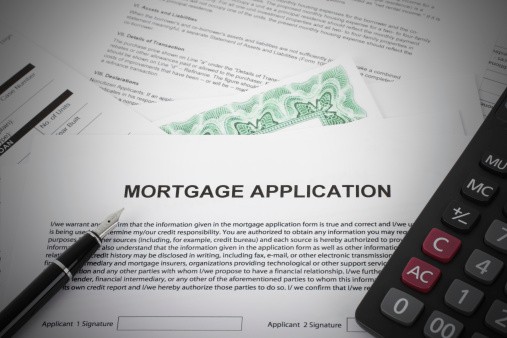Forbearance is when a lender and borrower have a special agreement to suspend or reduce your debt’s monthly payments. To keep the record straight, it isn’t debt forgiveness per se. You can request this financial accommodation from the lender if you’re struggling financially to pay your loan or credit card.
Loss of employment, health problems (i.e., you’re paying for medical expenses), and other reasons that affect your capacity to make payments can be demonstrated to the lender.
The unprecedented rate of unemployment brought by the Covid-19 pandemic has increased the number of applications for forbearance. The high availability of forbearance plans during the pandemic is true within the private loan sector and government-backed mortgages.
Here’s a blog article to learn more about forbearance, how it works, how you can qualify for it, and its effects on your credit score.
Types of Forbearance
A particular type of debt needs a special kind of forbearance. Here we’re going to discuss the three common types of forbearance applied to mortgages, credit cards, and student loans.
Mortgage Forbearance
Homeowners who are in financial straits can apply for a mortgage forbearance to give them relief. Before you request this debt payment arrangement, make sure to do your research. It’s also crucial to read and understand the terms of the agreement between you and the loan provider.
In a mortgage forbearance, your lender might grant you financial accommodation in which you only pay half of your mortgage payment for a few months. Then, when that period has passed, you’ll be required to pay the lender a lump sum of the payment you missed during that time.
Your mortgage lender might also enable you to stop making payments on the principal amount for a certain period but will still demand you to pay the interest.
Mortgage forbearance indeed sounds good to those people struggling to pay their mortgage. However, you need to understand that your mortgage provider might not always agree to your request for forbearance.
Credit Card Forbearance
Credit card issuers can also provide temporary relief to credit cardholders who have difficulties with their finances. You can go into a negotiation with your credit card issuer when you’re hit by a natural disaster or a financial crisis. But keep in mind that the credit card company won’t cancel out your debt altogether but only provide you temporary relief.
For example, the credit card company may allow you to pay reduced fees and interest rates on your credit card. It may also delay your payments for a specific time or extend your credit line. The credit card company’s policy and your finances will have an impact on your qualifications to obtain a credit card forbearance.
Student Loan Forbearance
Do you have student loans that you’re currently struggling to pay due to the pandemic? If yes, you should apply for a student loan forbearance.
This arrangement helps you to postpone making payments on your student loan for a specified period. It also has two types, namely general student loan forbearance and mandatory student loan forbearance.
General forbearance is obtainable if a financial difficulty is affecting your capacity to make loan payments. You can delay your payments for no more than 12 months. Typically, there are three programs of such type for each loan, which means you can avail of it in a total of three years. Your lender will have to decide whether to grant you this type of forbearance.
As its name suggests, mandatory forbearance requires the loan provider to grant it to a borrower as long as the latter meets the qualifications. If the borrower is a teacher, serving in a medical residency program, or a member of the National Guard, he/she can qualify for a mandatory forbearance.
How Does Forbearance Work?
The rationale behind providing forbearance to a borrower is to allow him/her some time to make the required payments on a debt. Accomplishing this goal will depend on the current financial situation of the borrower. That’s why if you’re requesting a forbearance, it’s a must to discuss with your lender the specifics of the arrangement.
It’s also crucial to keep in mind that your loan may still gain interest during forbearance. Talk to your loan provider about it beforehand so you won’t be surprised when the forbearance has passed, and you’ll be regularly paying the loan again.
The agreement should be made in writing, and don’t hesitate to ask the lender to explain the changes in repayment terms and interest. In this way, you’ll know the ins and outs of forbearance.
Difference Between Forbearance and Deferment
Many people often used the terms “deferment” and “forbearance” synonymously, but the two are different from each other.
For instance, obtaining a deferment on a student loan, the program’s duration typically lasts longer than forbearance, and the interest won’t accrue. However, a student loan deferment has more stringent requirements than a student loan forbearance.
The Forbearance Credit Score Effect
Before you request a forbearance, ask your lender how it can affect your credit. Loan providers have various ways of reporting your account to major credit bureaus. For instance, they may note that a financial strain has impacted your account, so it’s in forbearance.
However, a forbearance credit score shouldn’t cause too much worry as long as you meet your obligations specified in the agreement.
How to Fix it if it Does Negatively Impact Your Credit?
It’s crucial to check your credit reports regularly. Major credit bureaus are now offering access to your credit reports online. In this way, you can view them and see if there are any unexpected errors in your credit reports.
If you find that your credit reports have something you weren’t expecting, make sure to talk with your lender about it.
Takeaway
A forbearance is a temporary relief if you’re currently struggling to pay your loans, mortgages, or credit cards. When you enter into a forbearance agreement with your lender, you’ll be allowed to suspend or make reduced payments of your debt for a specified period. You can learn more about this program and other debt relief options by contacting us today.









